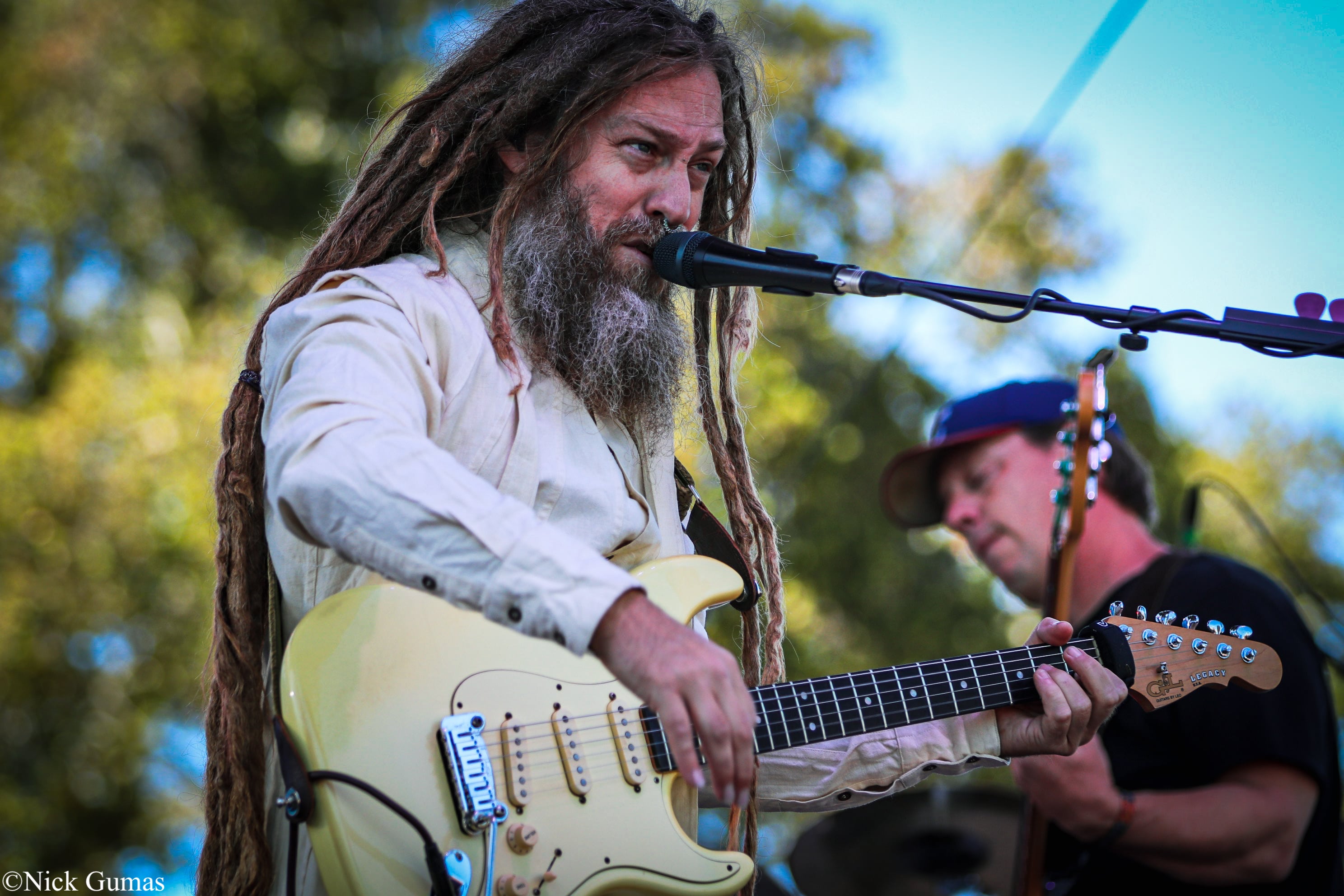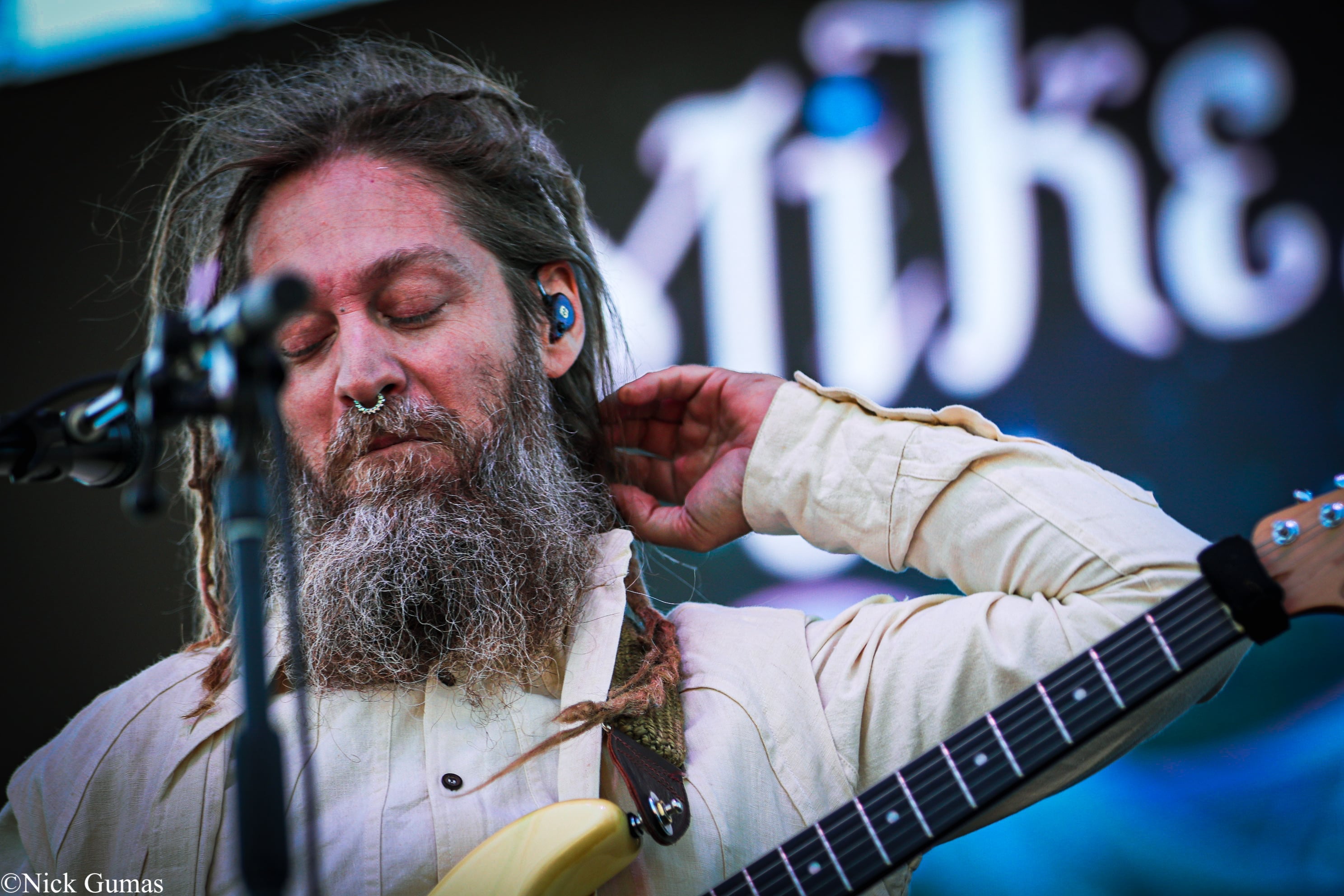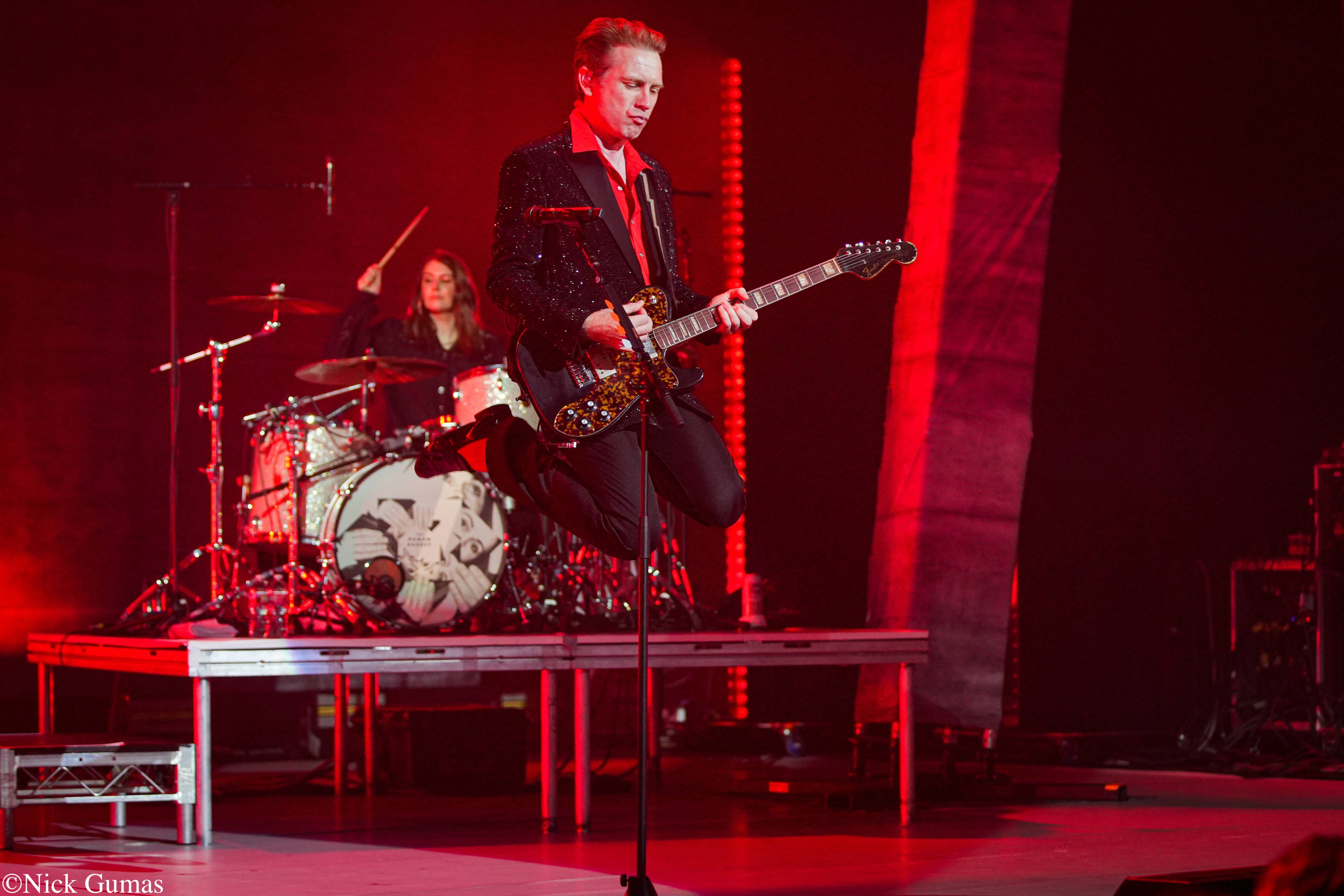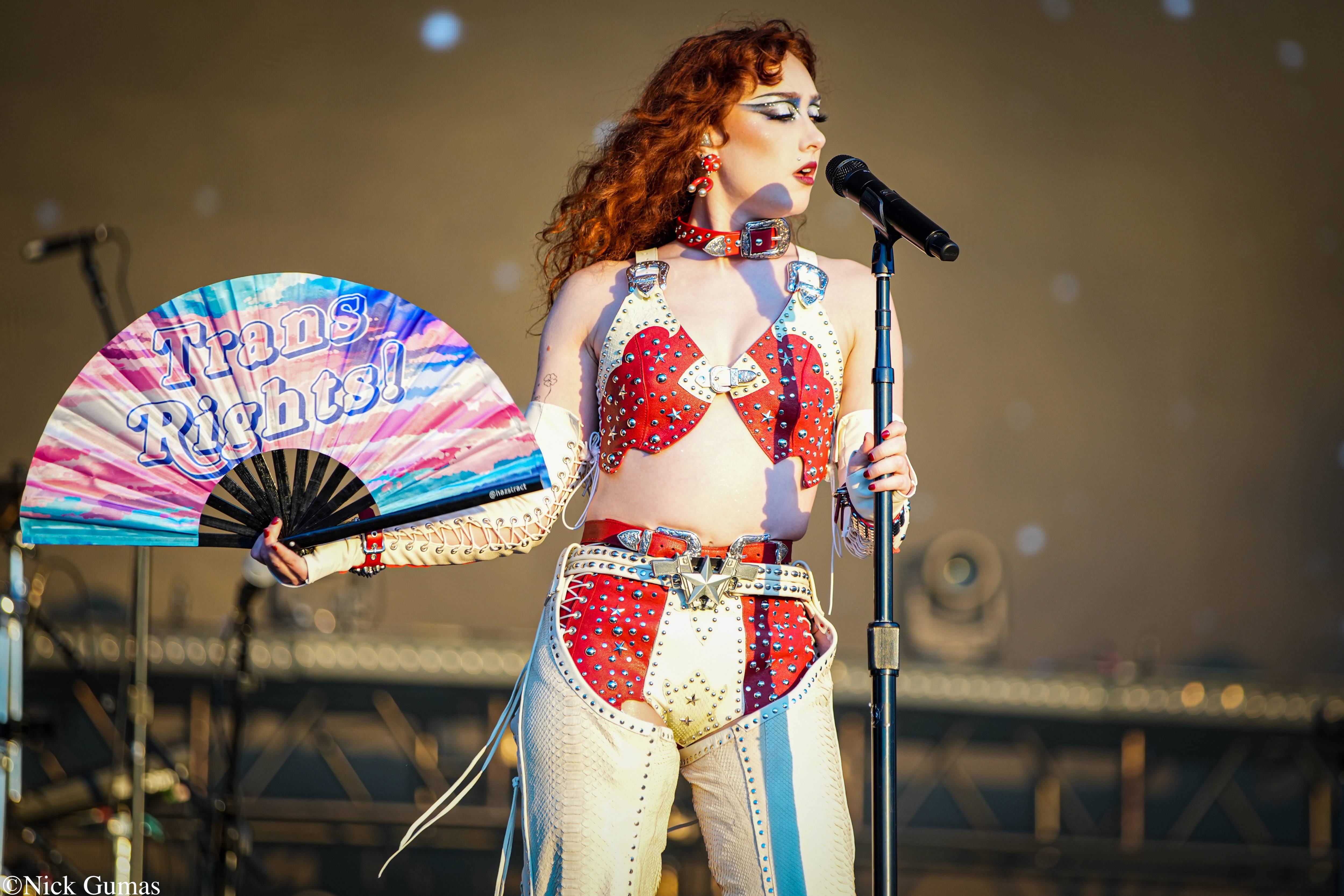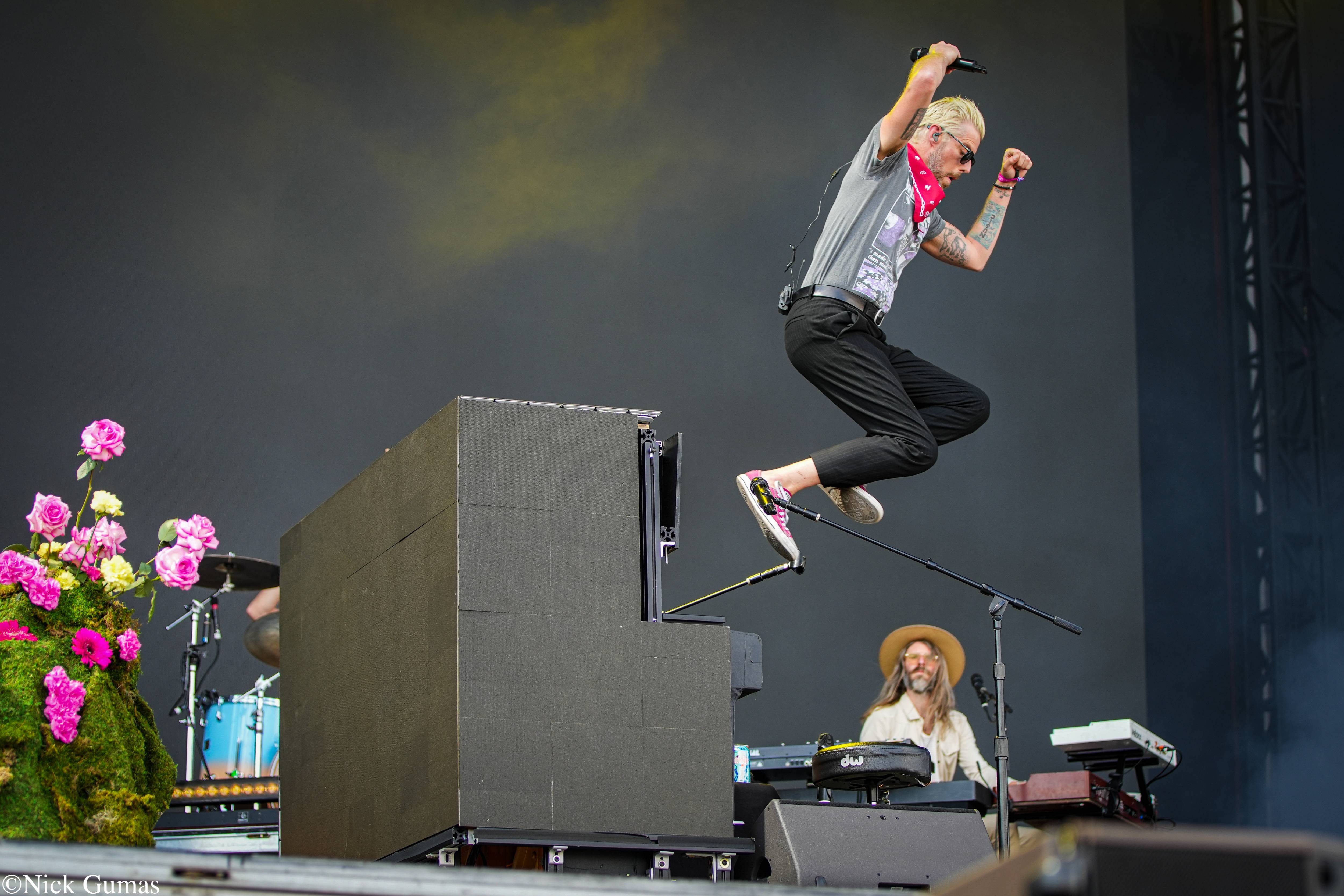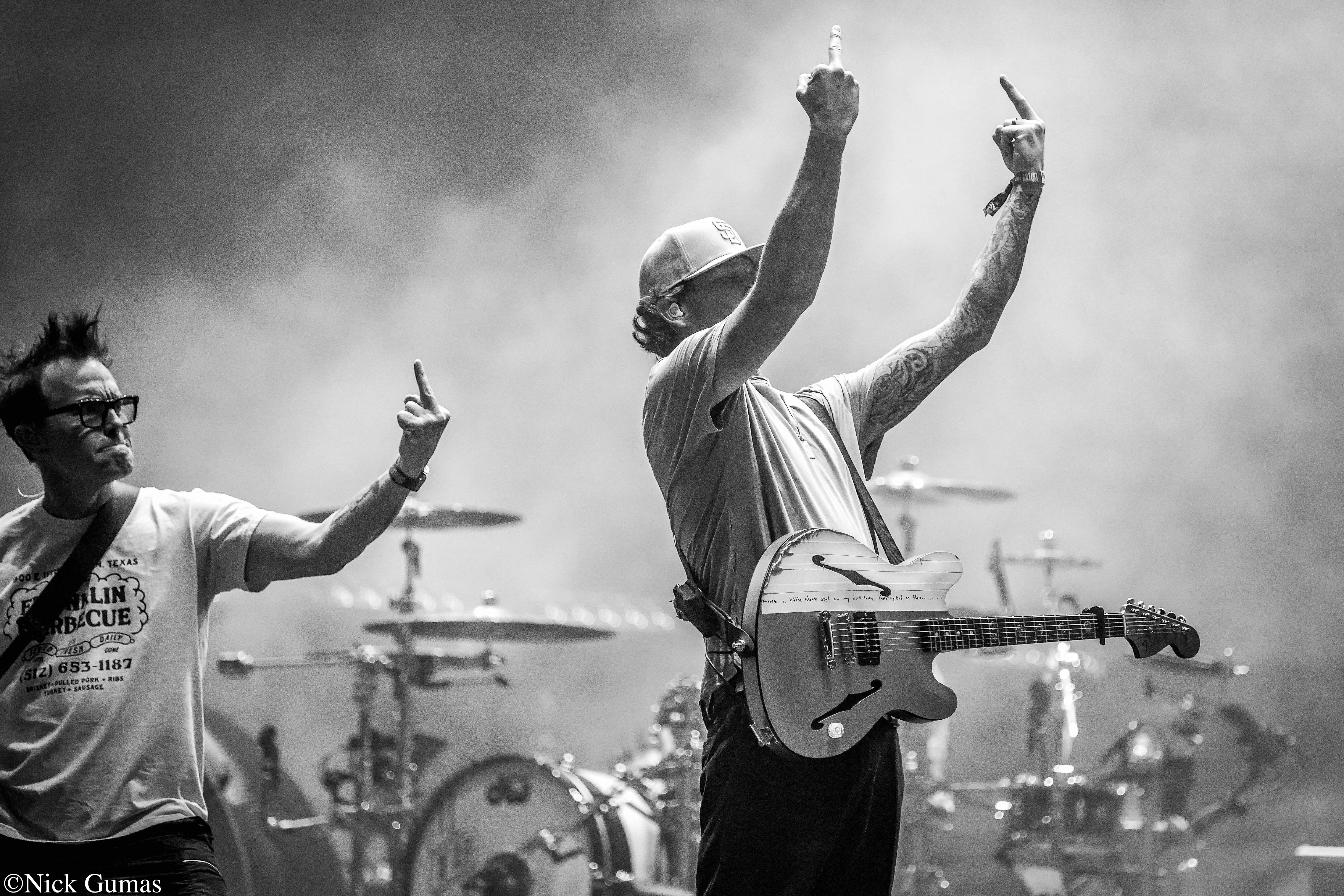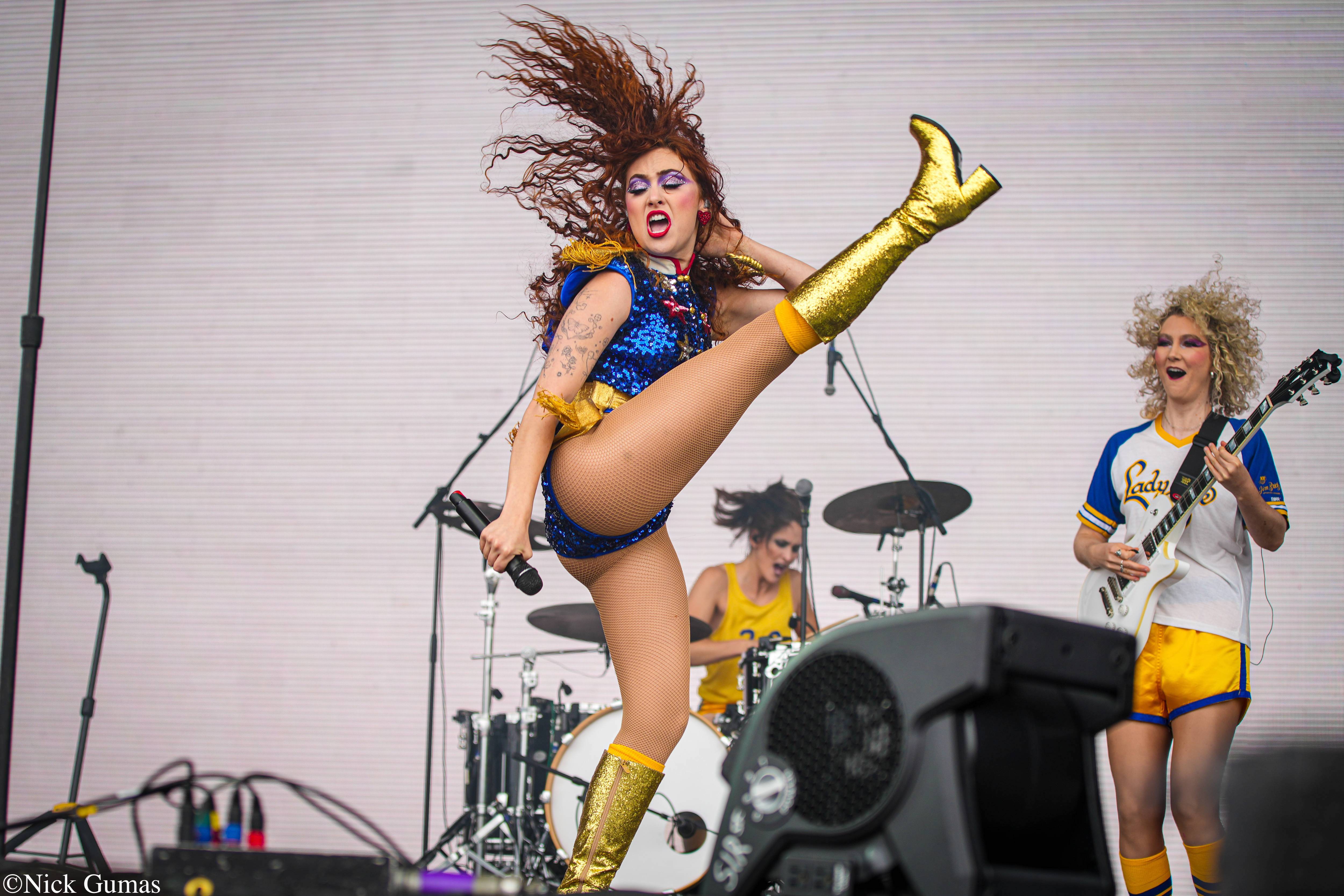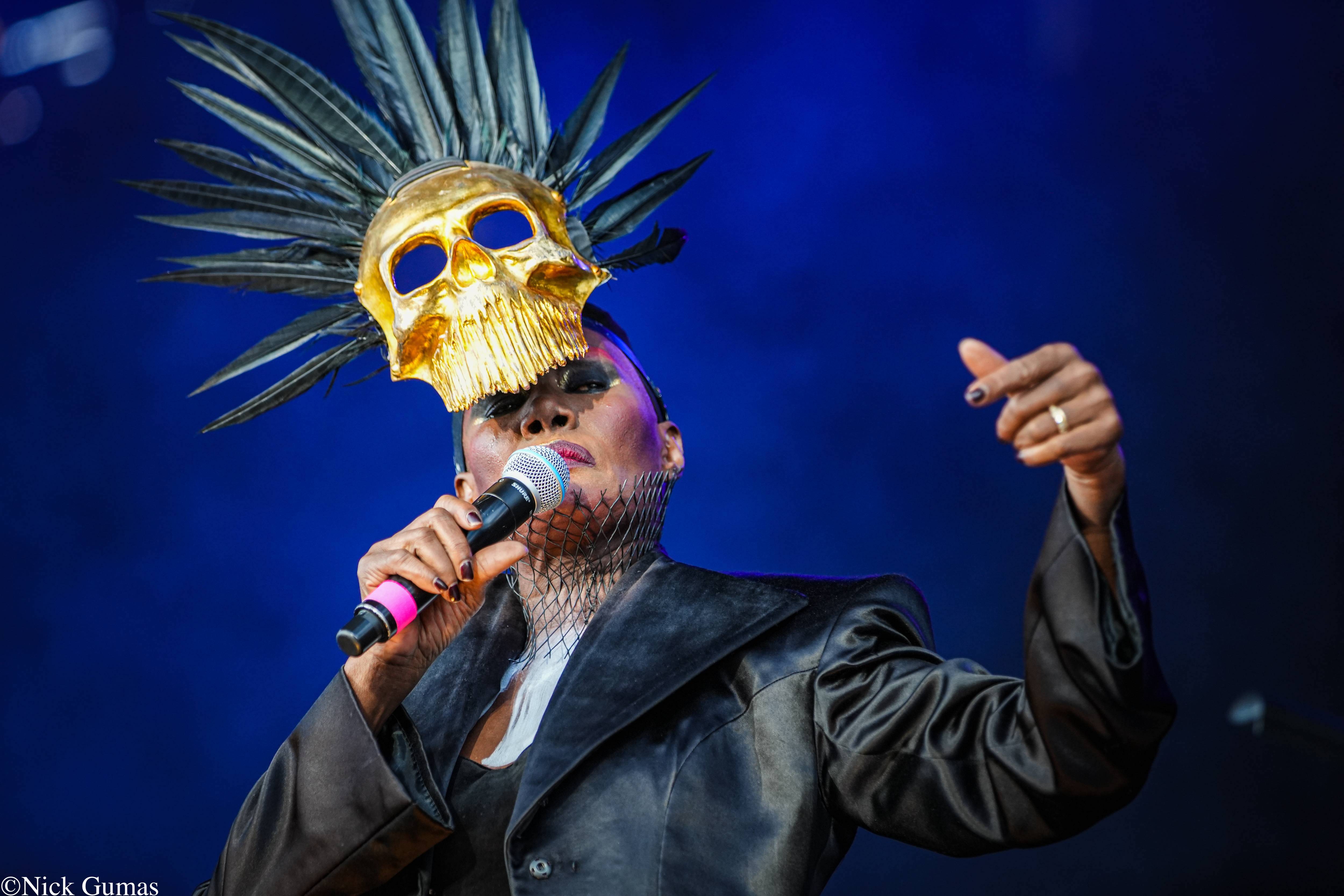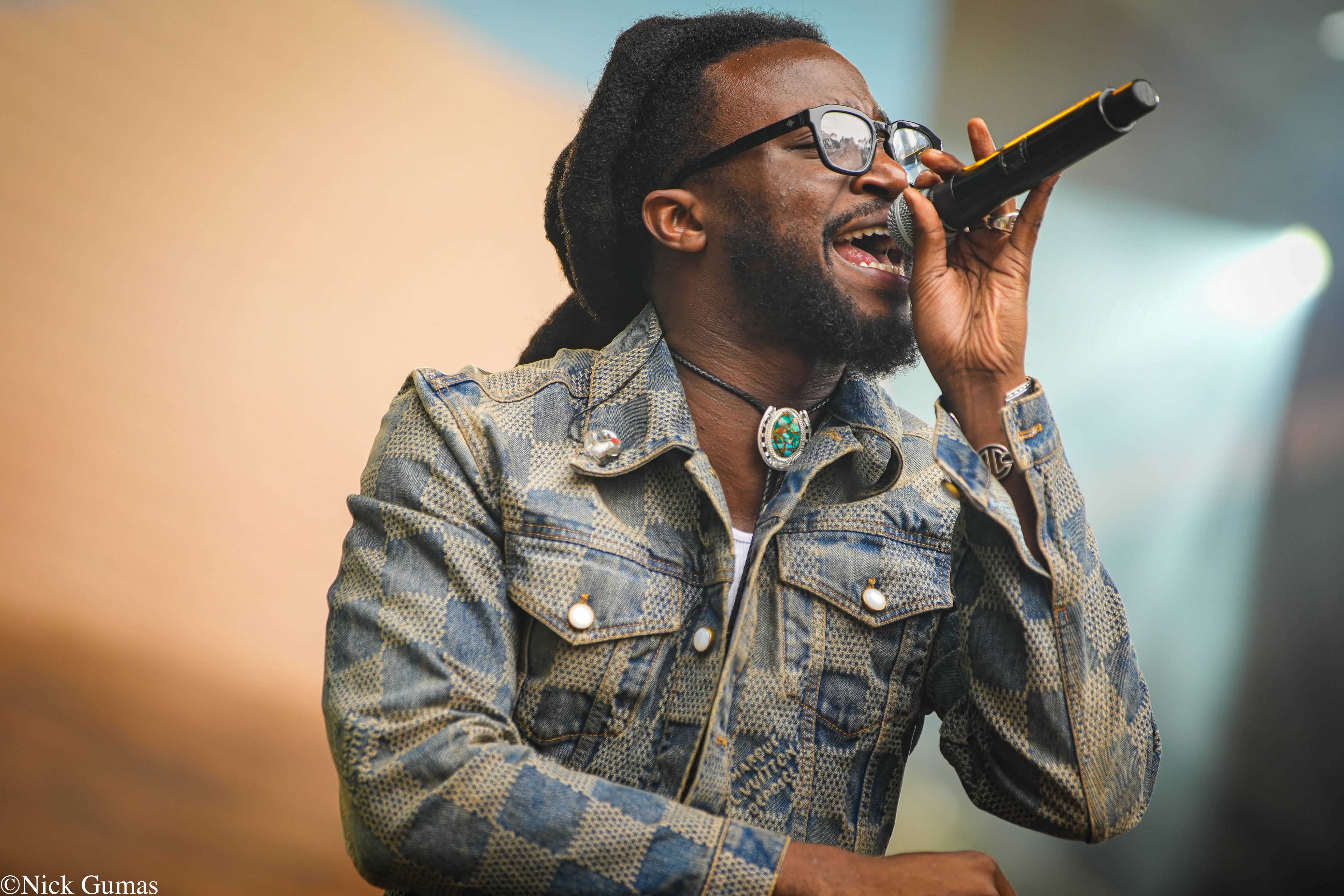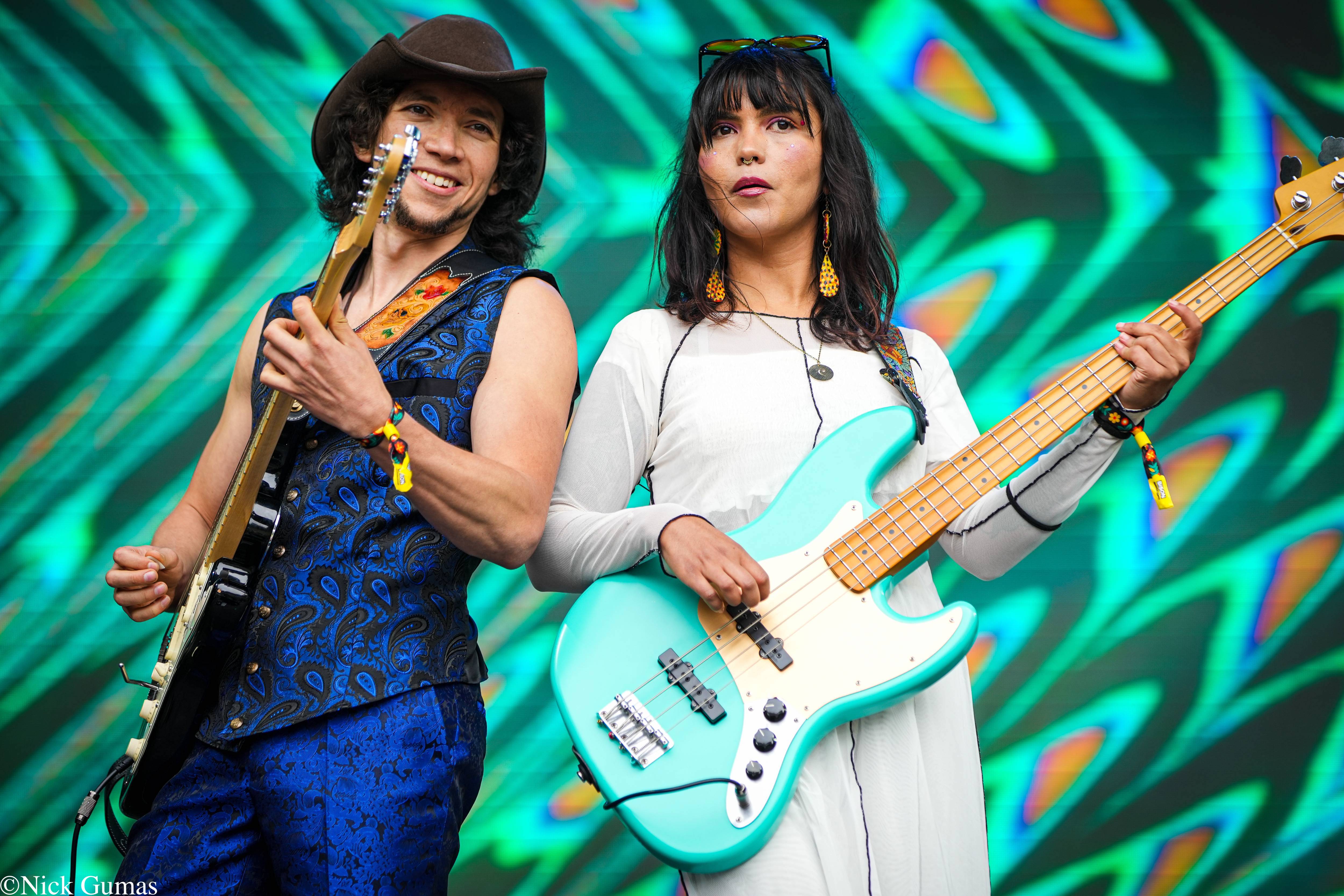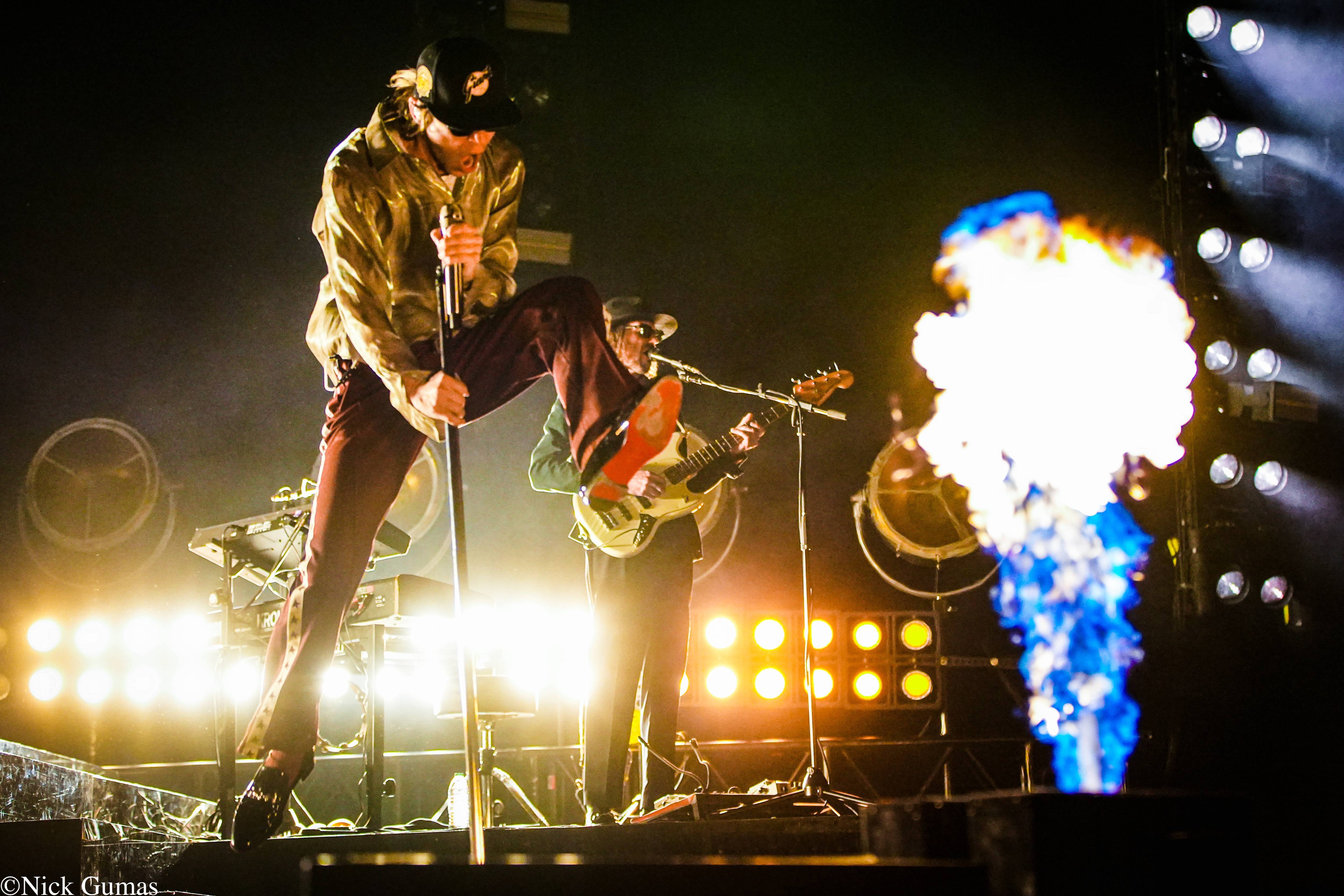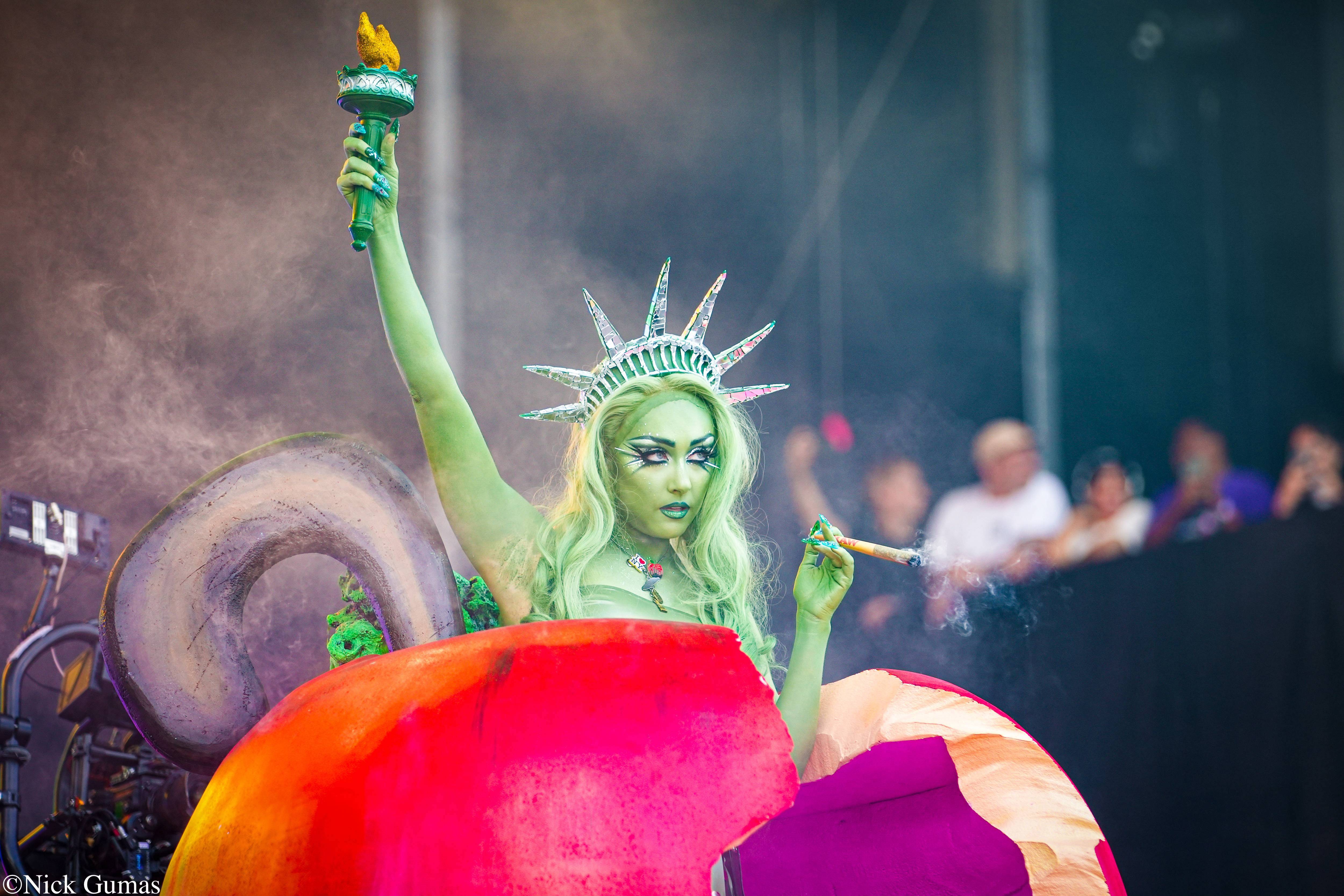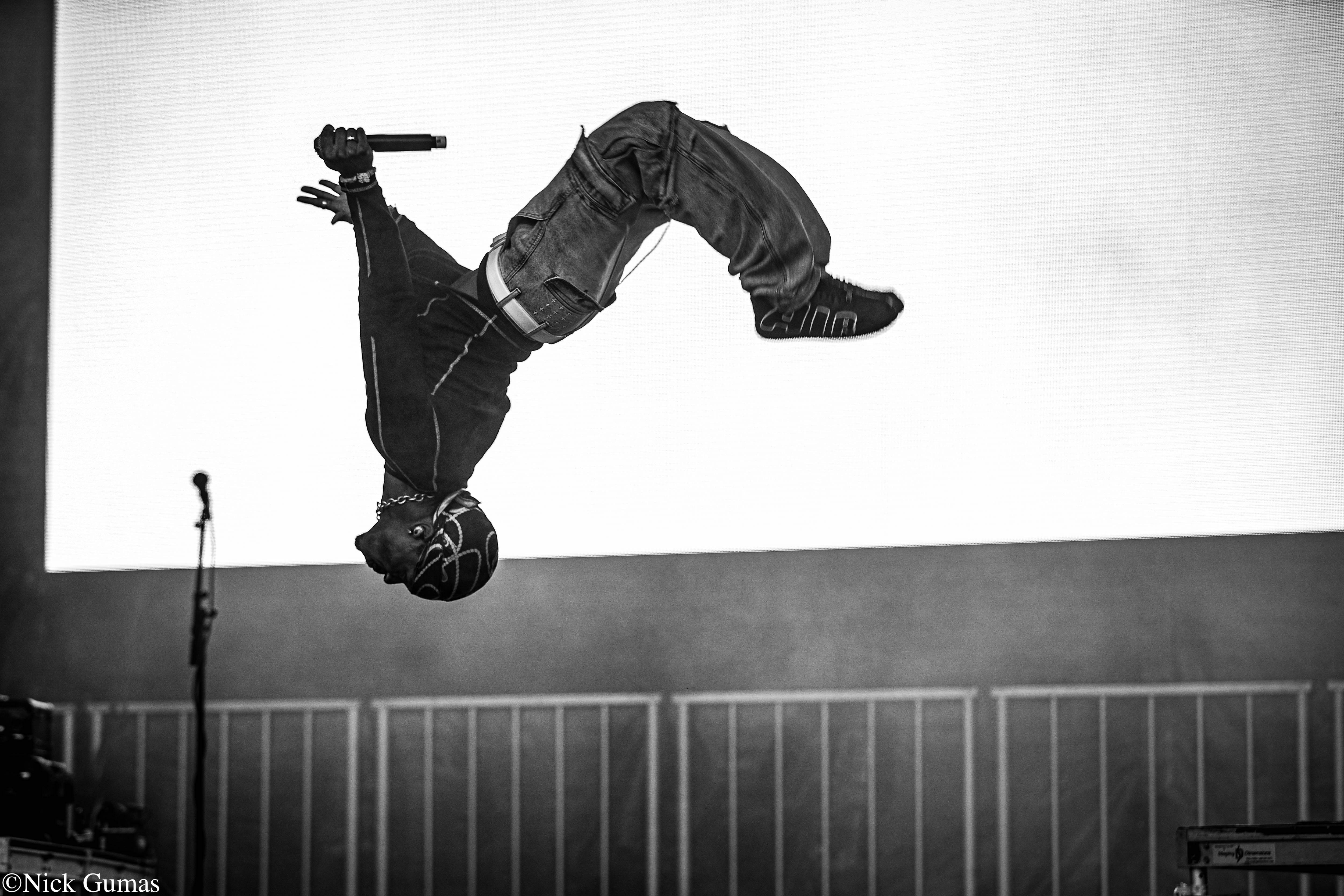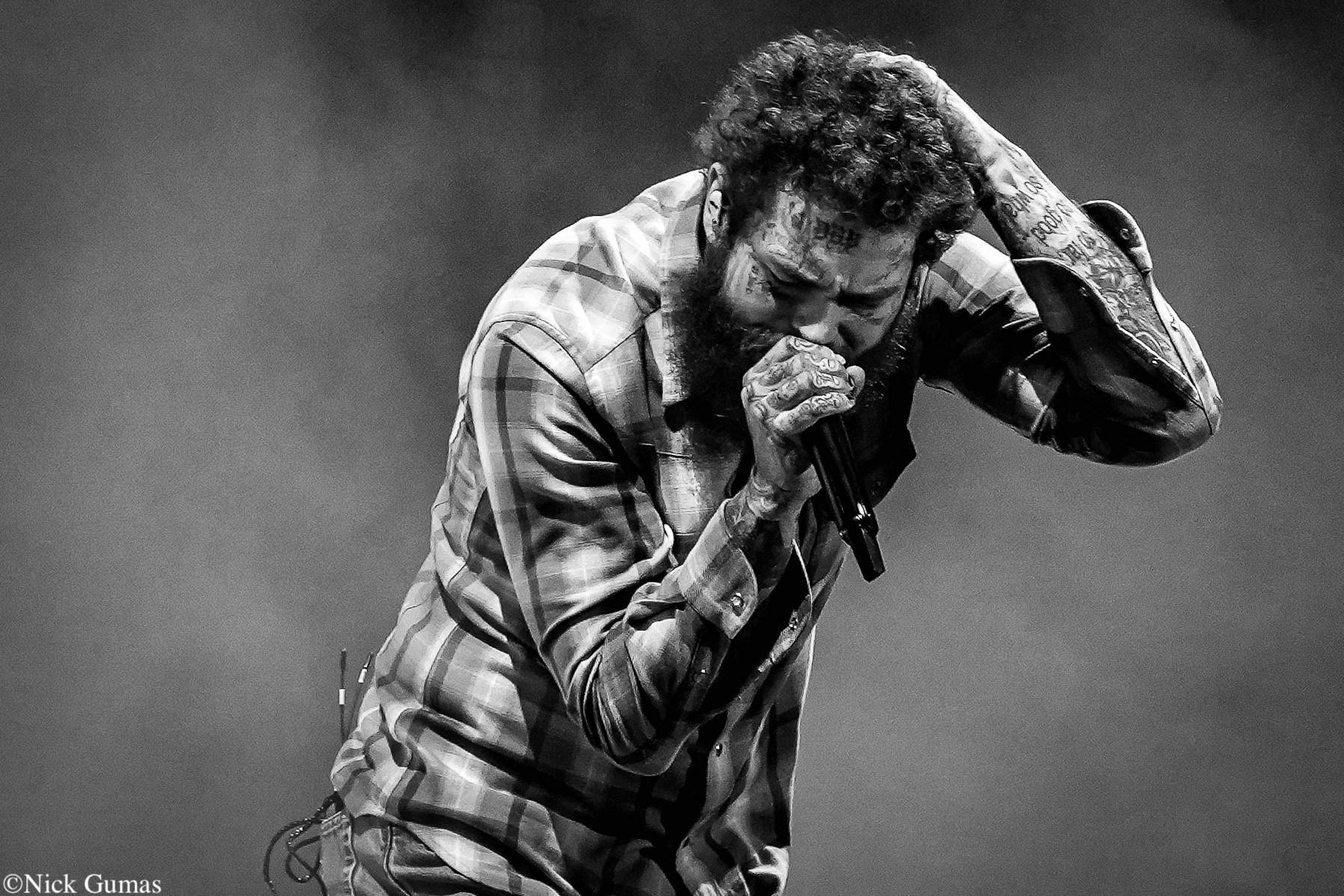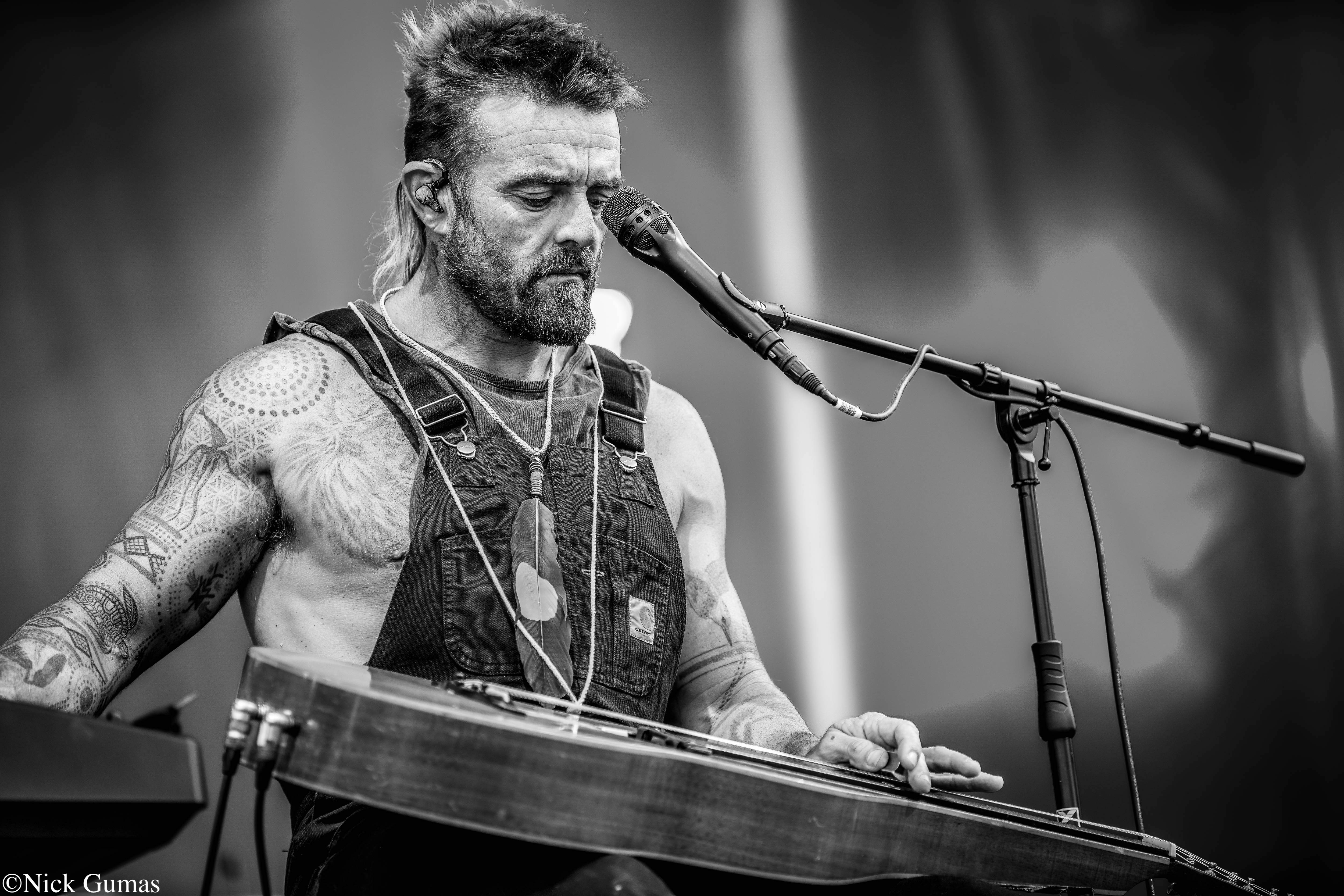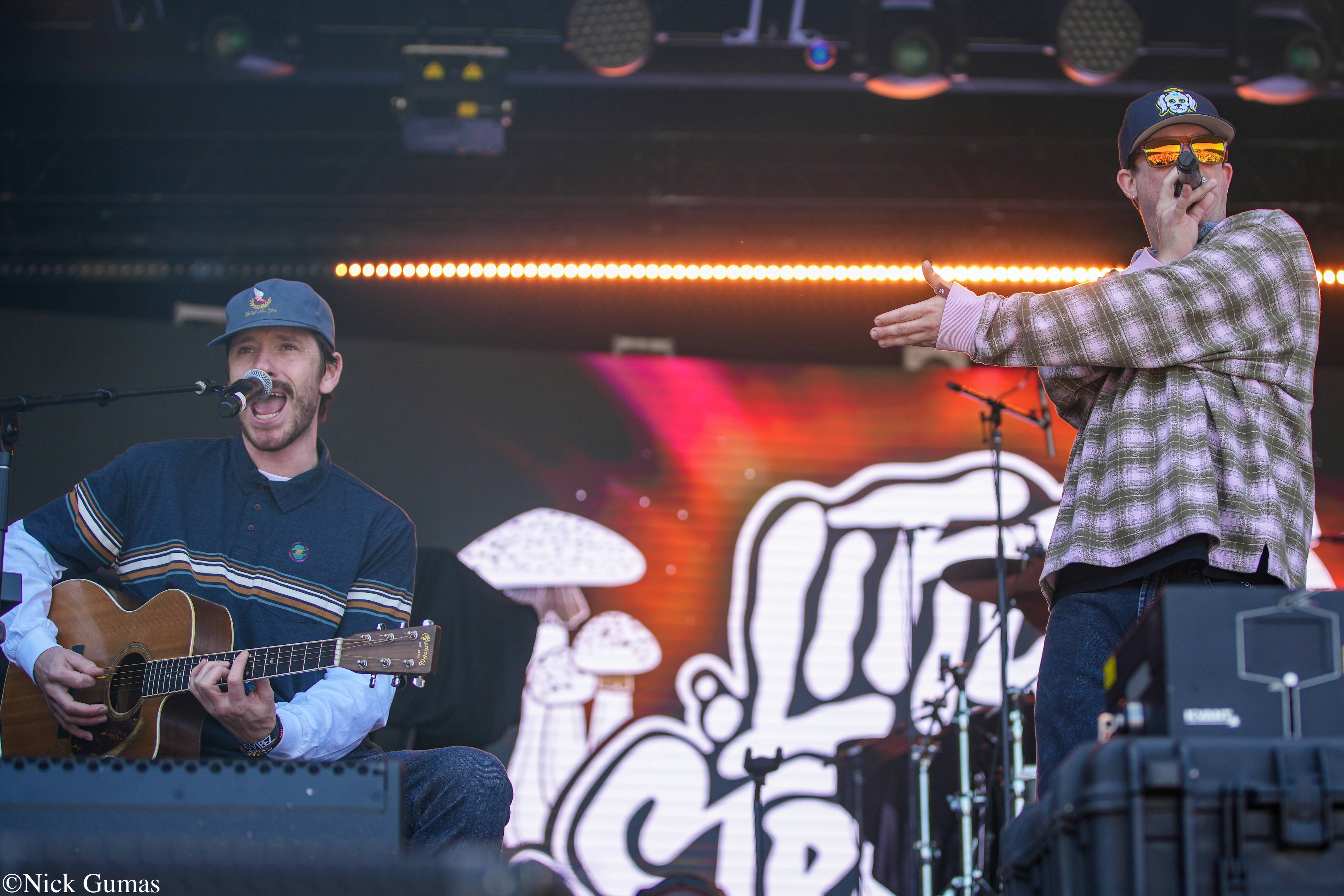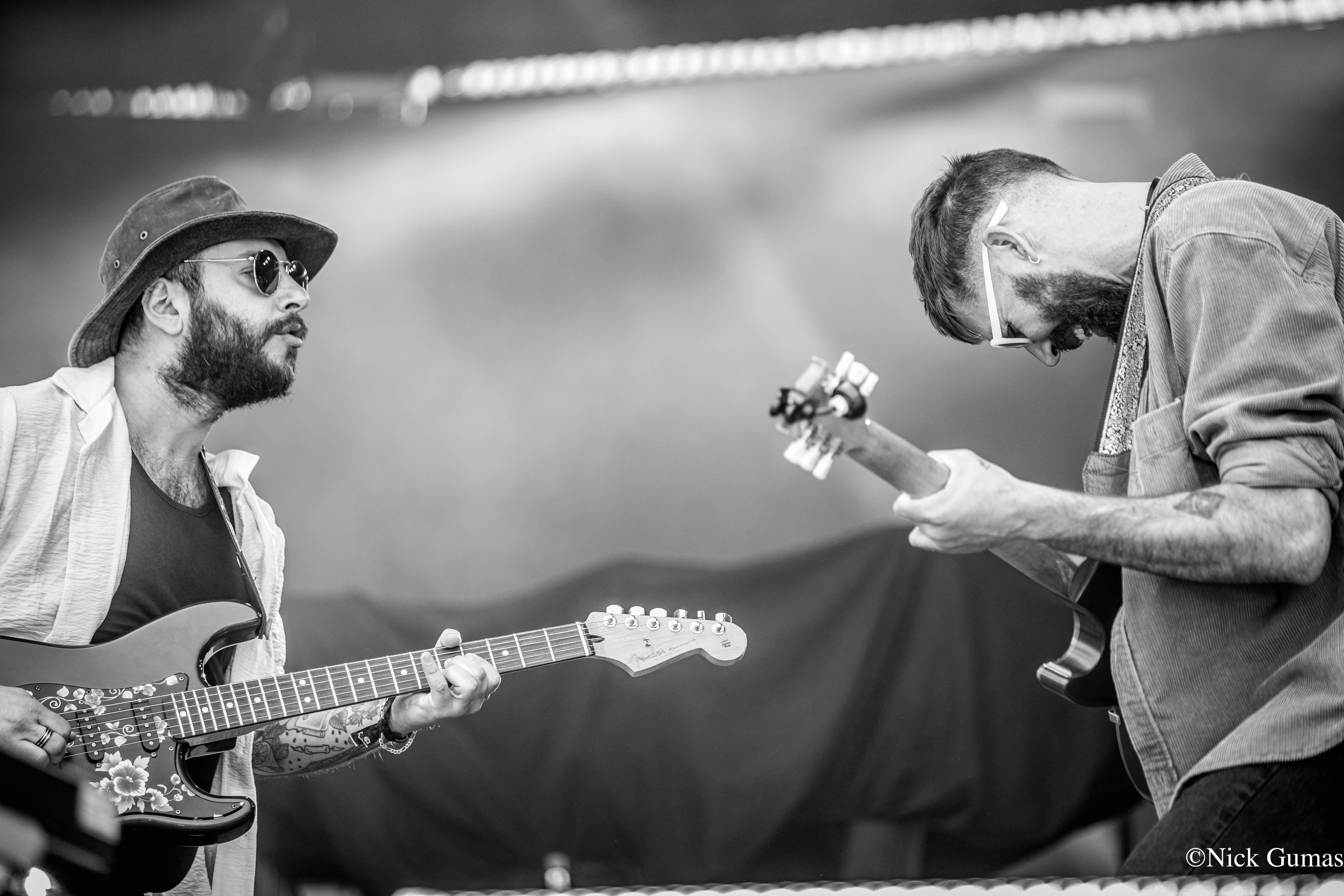Reggae has always been known as the genre of “one love” but from the earliest days of his Hawaiian origin, Mike Love has taken this to a new level. He wears many hats as a musician, a spiritual shaman, and even an ordained minister, but few who meet him could help but call him a friend as his welcoming and affectionate aura touches shines so brightly.
Grateful Web had the chance to speak with Mike at this year’s Cali Roots Festival in Monterey to ask him about his self-transformation over the last several years, his hair care regimen, and his relationship with his diehard fans, some of which have seen him play live several thousand times.
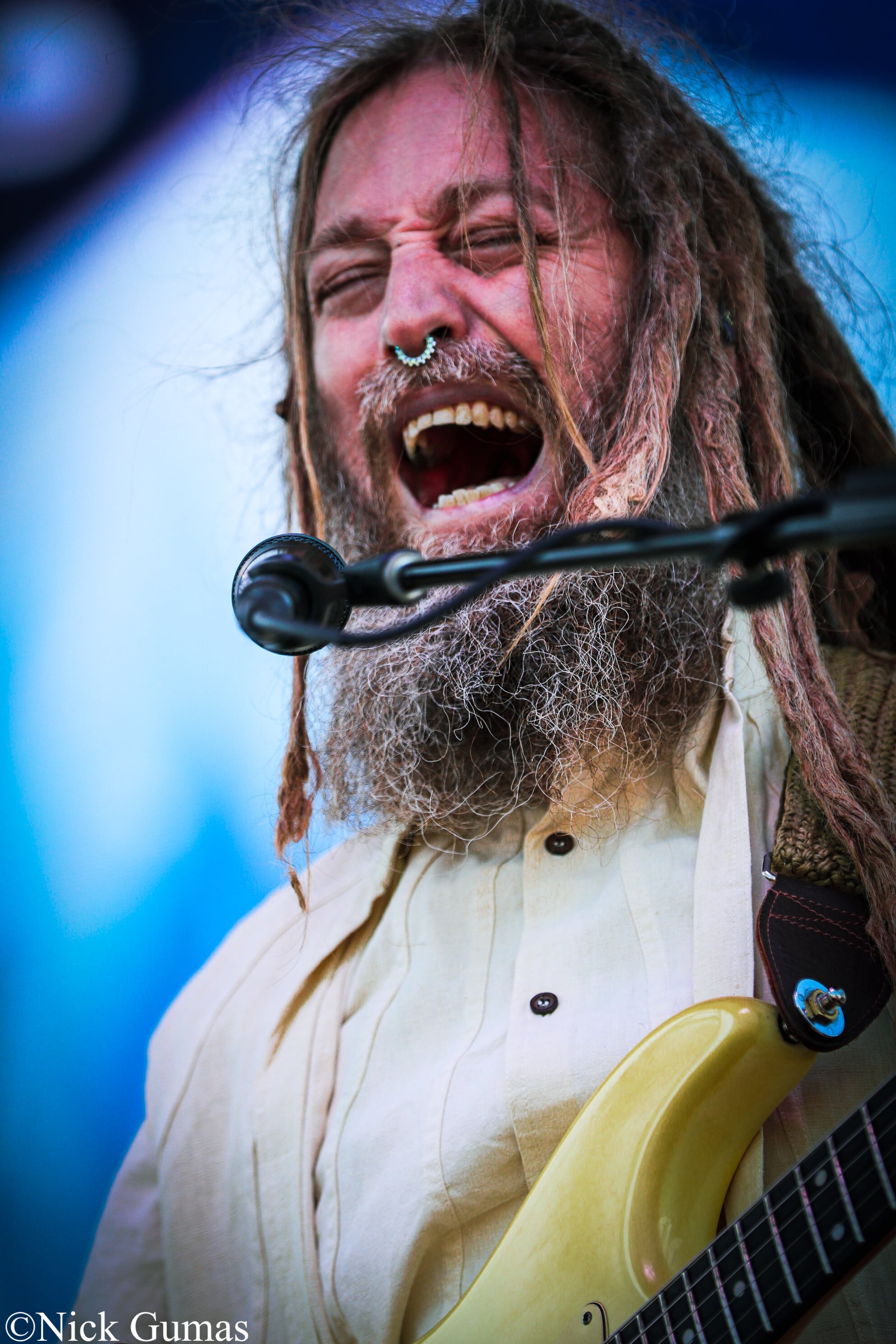
Grateful Web: Last time you played Cali Roots, I by coincidence met someone in the audience who told me they have seen you play in the Hawaii bar scene more than 600 times and flew across the Pacific Ocean to watch you play this festival. How have you created such a healthy culture between you and your fans?
Mike Love: It’s funny because I do have a lot of fans like that. Like I have fans in Hawaii because for years and years, I actually don’t live there anymore, I moved like a year ago, but for years and years, before I ever toured, I built up a fanbase in Hawaii. I would play like five or six nights a week and even when I started touring I would go back home and play, and I had a lot of people, fans, who became friends and family who would come basically every night I played for years and years, so there are people in Hawaii who I know have seen me at least a thousand or a couple thousand times, like literally that much, because I’m doing a couple hundred gigs a year there over 12-15 years or something now. When you talk about my relationship with my fan base, my favorite part about it is that all those people who come again, and again, and again, eventually they recognize each other and they form friendships and I hear about a lot of people who met at my shows and then got married and having kids.
GW: Did you play at their weddings?
ML: Man, some of them I’ve performed the weddings as the minister. I’ve done that for a few fans for sure.
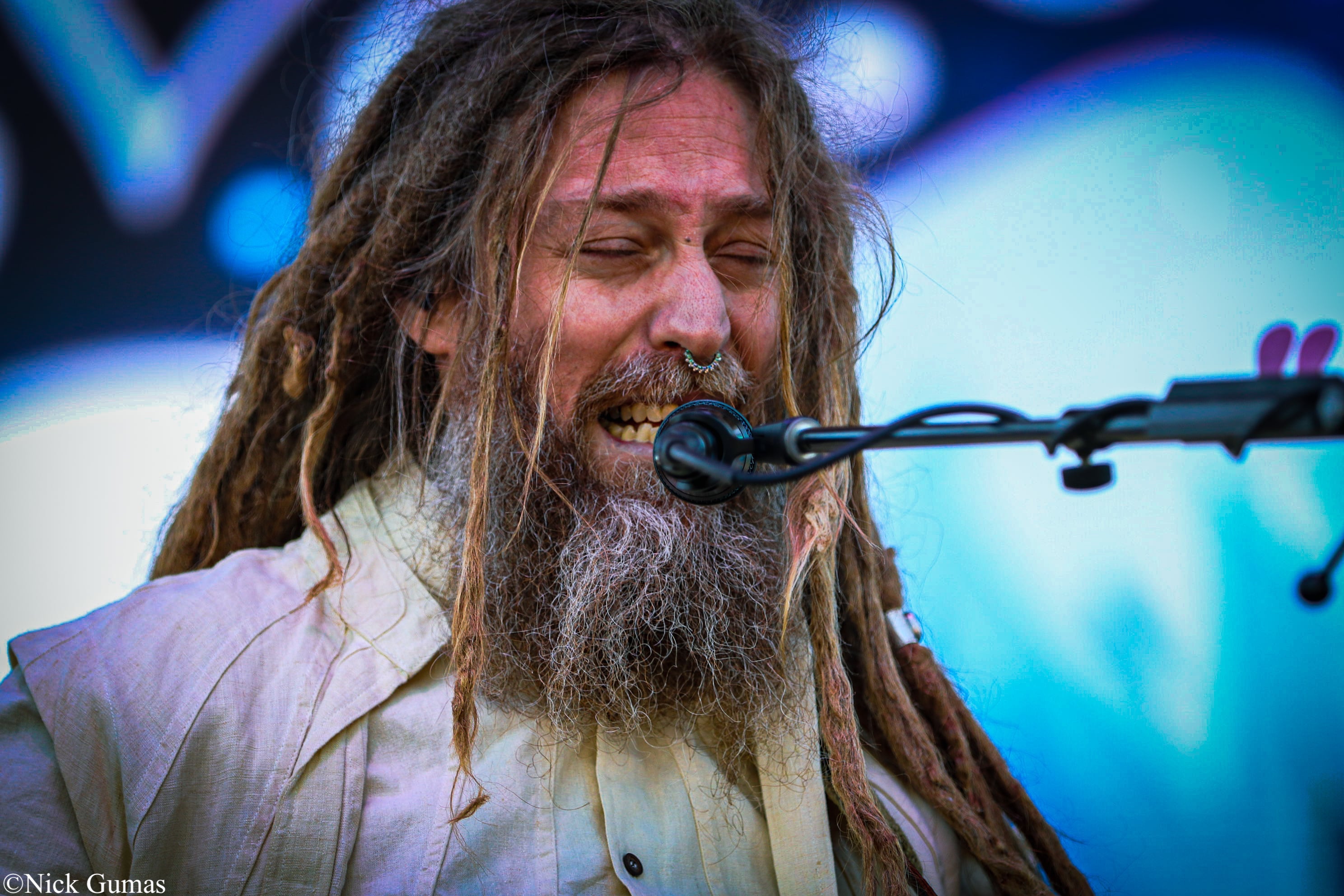
GW: So how often do people confuse you for the other Mike Love and how often do you hear that joke?
ML: You know, probably less than you would think. Less than I would expect. But yeah, every once in a while. I think most of the people who listen to my music don’t know the Beach Boys as much, I don’t think there's that much of a crossover. I’ve started to wonder if over the years, like he’s probably at some point figured out that there’s another dude out there too that was pretty successful with the same name as him, so I wonder if he gets that question sometimes.
GW: Have you two ever met?
ML: No, we’ve never met. I met Brian Wilson and his group of people were cracking up when we were talking and they were like “Man, I never thought we’d see Brian Wilson and Mike Love get back together!” It’d be interesting to meet him though, again, I wonder if he’s really aware of my presence. At one point he actually took my “BandsInTown” account. I guess he didn’t have a BandsInTown account, and then somehow he hijacked my account that I had been building up for years, and I had to go through this whole process to go “Hey! This is my account, you stole it!” It was funny though, it was probably a misunderstanding.
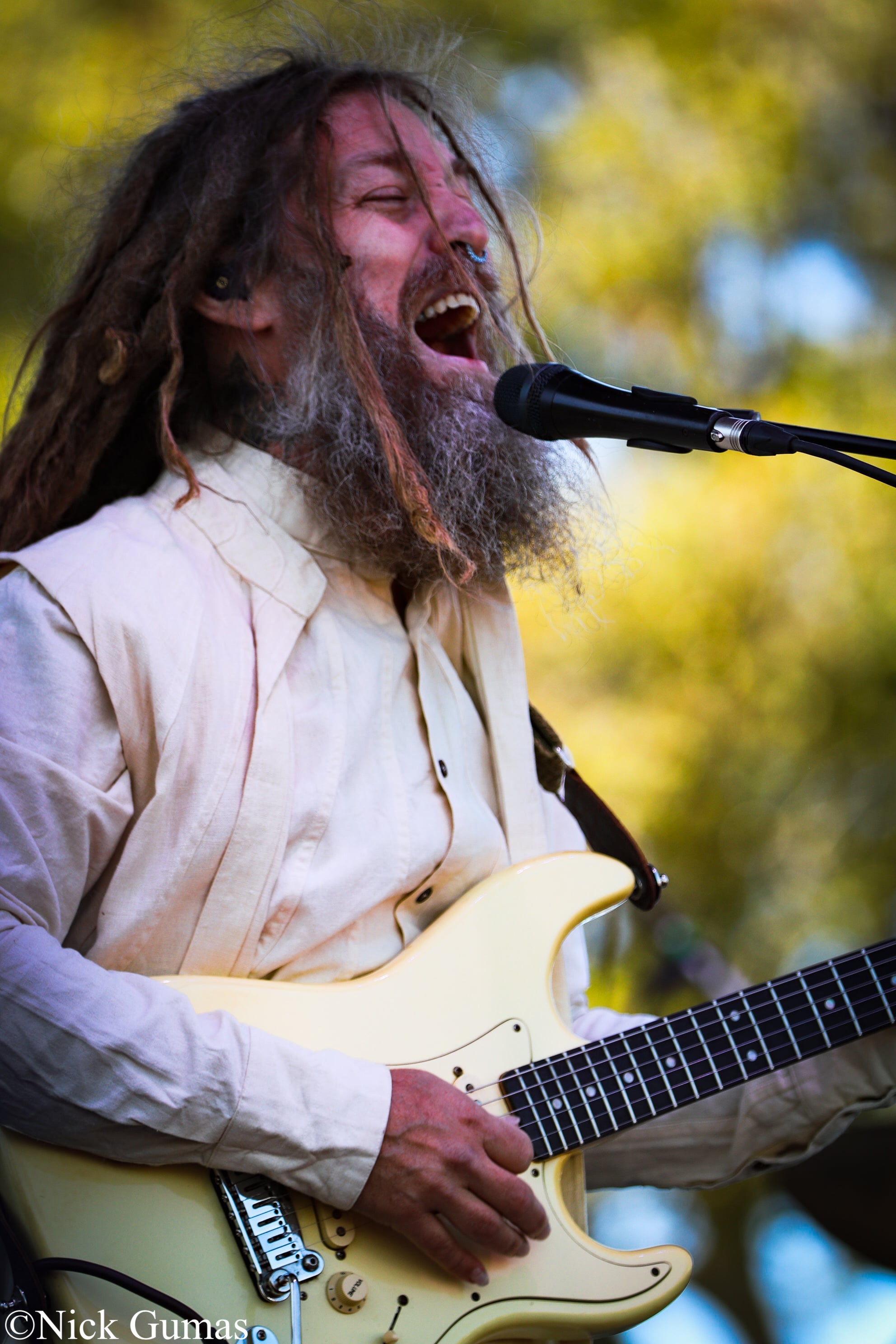
GW: So I don’t think any rational person could argue we’re just coming out of the two worst years in modern music history. Walk us through what the pandemic was like for you. The first couple of weeks, the uncertainty throughout, how you stayed productive, whatever you feel comfortable sharing.
ML: Well right at the beginning, it seemed like we were all hoping it would be just a few weeks, but I think for me, I’m pretty aware of the underbelly of the system and the agenda that unfolded there, so I figured out pretty early that it wasn’t going to be just a quick thing that was going to go away, it was going to last a long time and there were going to be a lot of changes, and the world is forever changed because of it. For me, my main source of income is from gigging and playing live music, so it was difficult and a major gear shift, and had a lot to do with why I moved to Washington and changed up my lifestyle. I learned to do a lot of different things, I had never done a live stream before, and I started doing quite a bit of live streaming, I did a regular weekly live-streaming thing that I hope to continue in the future. When I did moved, I stopped being able to do them because I’m in an area where there is no capability for streaming because the internet's horrible. But I’ve had a lot of success through YouTube, but it was never my own channel, it was always another person’s channel, so I created my own and started creating content for that and it’s been great, it kind of forced me to learn how to work camera equipment and edit videos, so that’s really cool. I also think that it was a great time for reflection and change. I went through a lot of change and a lot of self-work that I had been putting off. I tend to serve others before I serve myself, and I learned over the last couple of years that I can’t truly serve others before I serve myself first and taking care of myself. I was neglecting my health a lot. Physically, mentally, and spiritually. Putting my family and my fans over my needs always consistently and constantly, there’s not a lot of longevity in that, so I learned over the last few years to figure out what’s causing me to put others first and I truly think that old cliche of “you can’t love others if you don’t love yourself first” is so true and I think the depth of understanding that is what I learned more these last couple of years.
GW: So do you think the last couple of years have changed music forever?
ML: Definitely. I think they’ve changed everything forever. How could they not? People talk about things going back to normal or this new normal, but everything's changed. Things are always changing, but something that so drastically altered how we view our freedoms, our ability to get out and do what we know we should be able to do, to share, and have that be taken away so quickly from us and not be able to do anything about it, it’s such a crazy thing to think. For example, my long-time bass player had to take a step back from the road because it just became unsustainable for him. Before this whole thing, we were cranking. It was supporting him and his family, and I knew it would come down to that for a lot of my musicians and a lot of working musicians because for me, personally, because I write songs and record music, I have some sort of passive income that’s always going to come in even if gigging goes away, but a lot of musicians rely solely on being supporting musicians for artists like me, and they do some studio work, but they rely on playing live, so a lot of those musicians, I’m sure, and again I saw it a lot in my own community, had to take a step back from music because that foundation was gone. How long before things go back to where they were and we’re able to support ourselves financially in that way? And then you have the crazy amount of inflation that’s happened, and you think we’re starting to get back to financially where we were but the money’s just not going as far. We have to pay a lot in gas just to get from city to city.
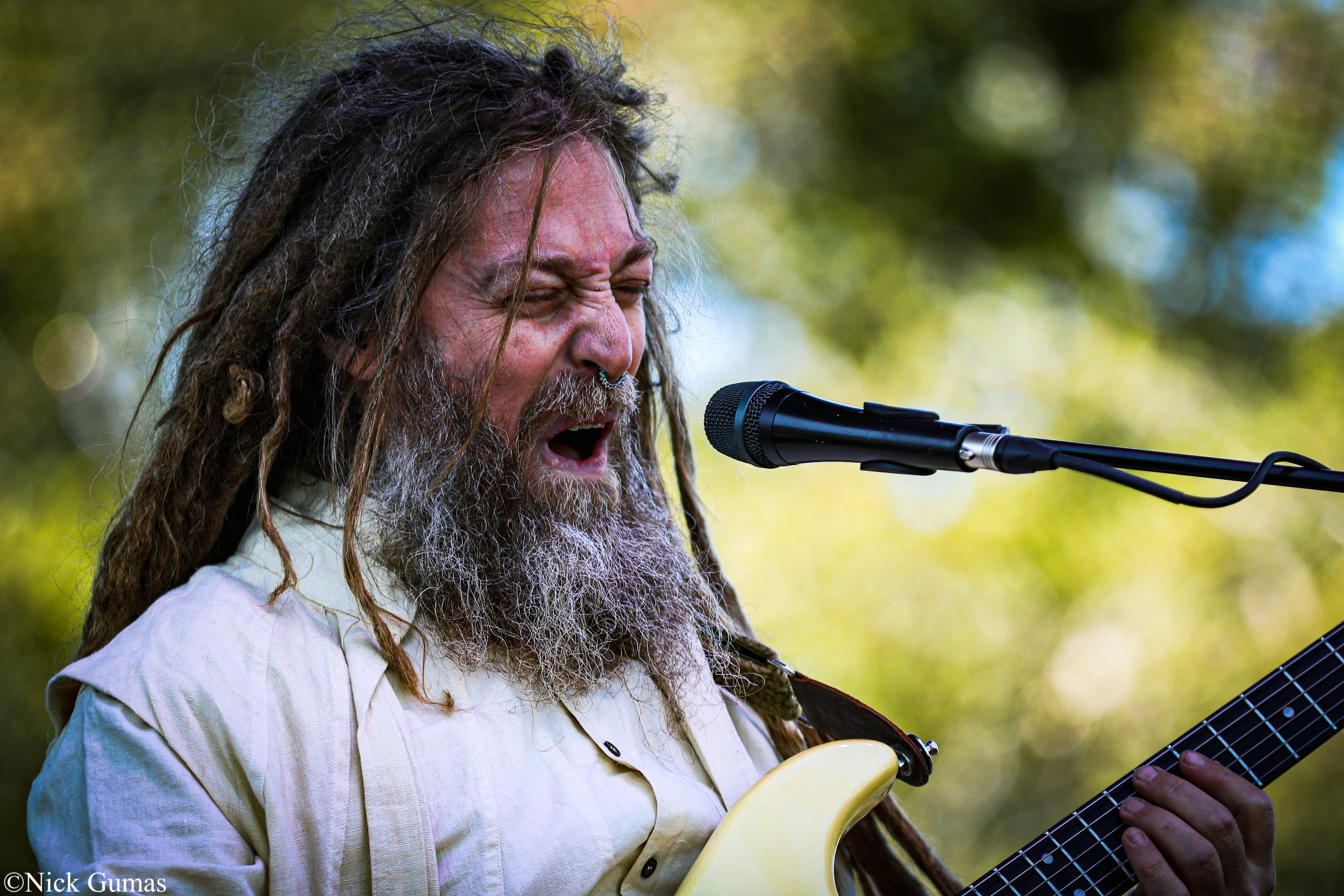
GW: So traveling as much as you do, who loves bigger? Hawaii, California, or Washington?
ML: It’s different, man, it’s just so vibrationally different. I can’t say any one is better than another. I go to Hawaii and I feel this Ohana love, and I just feel so comfortable. Even though I don’t live there anymore, I can go back there any time and there’s no pressure. And Cali, it’s huge. Reggae music here is so loved and it’s the first place to really open and welcome me outside of Hawaii, and Washington is the same. I have a lot of love in Western Washington. In Spokane as well, but in Seattle, and Tacoma, those areas have always been really welcome to me, and Eastern Washington where I live now is so different than Western Washington. Just the mentality of people. Seattle is so clustered and packed in, but where I live now, we’re homesteading on our big property and we don’t really run into people unless we go over to Spokane, but it’s different, man. It’s all different, you can’t compare, but the love is solid everywhere I go in the world it’s just love. I always say I’m the luckiest musician alive because anywhere I go in the world, I attract the best people in that area because everywhere I go I attract the best people in that area and they just come to me.
GW: So I want to get some advice from you. About 10 years ago I stopped cutting my hair. A couple of years ago it got to the length it is now and just stopped. Your hair goes down to your ankles, do you have any advice for me?
ML: That’s the thing about dreads, it doesn’t ever stop. With dreads, it’s all tangled, right? So your hair stopped growing because it reached a length where it’s a critical mass and your hair is always falling out, so the hair that would grow longer has fallen out already, and it’s constantly replenishing itself. Like my beard, it doesn't get longer than this. I haven’t cut it for as long as I’ve cut my dreads, but the dreads, all the stuff from my waist down is not connected to my head anymore, it’s just connected to itself.
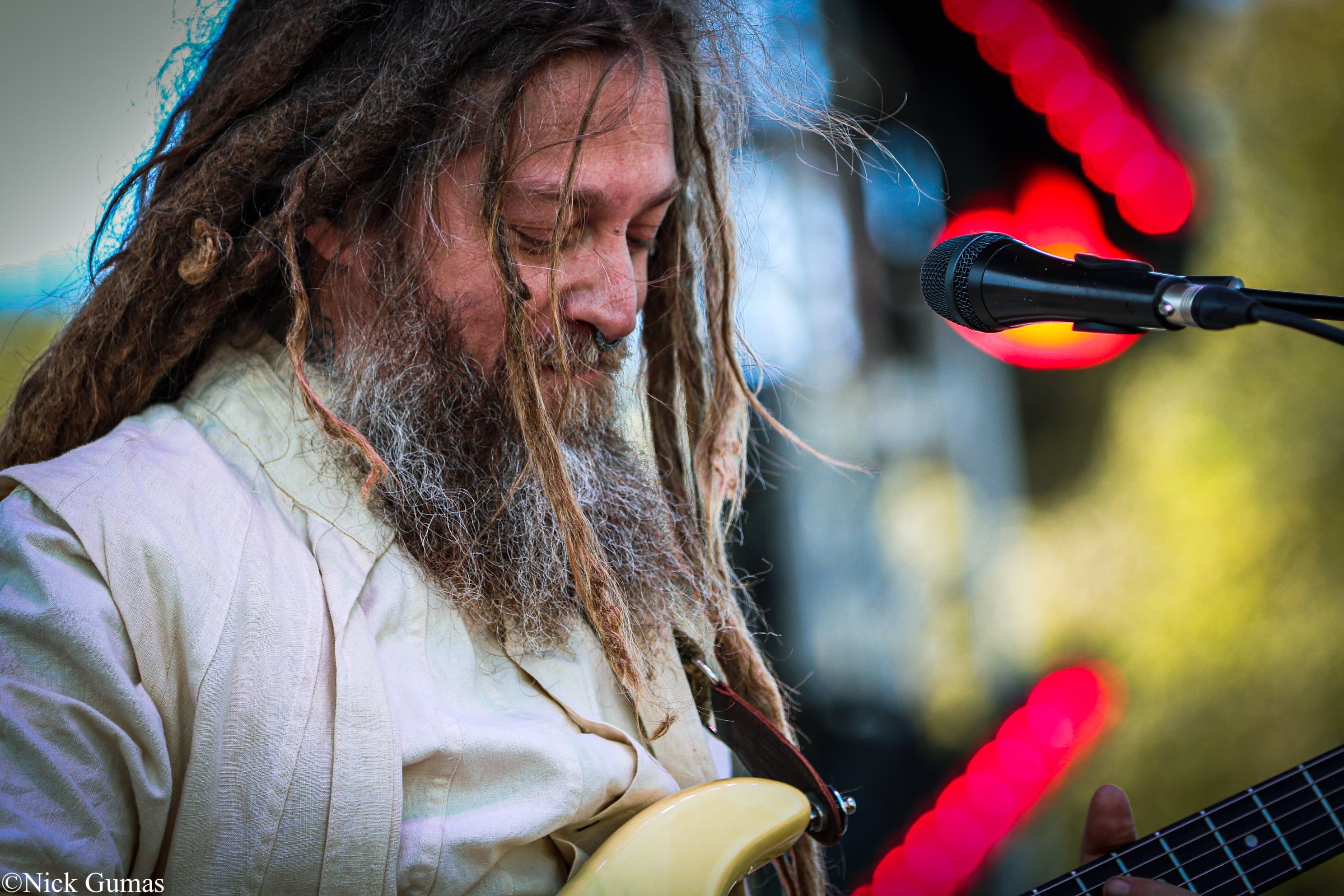
GW: So what’s next for Mike Love?
ML: Well, I released a new EP, a collaboration with an incredible band, Rising Tide, who the drum and bass player are playing with me now in The Full Circle. But they’re an incredible band, it’s an EP called “Together.” It’s four songs and I really love how it turned out. These guys are musicians who have inspired me for a long time and working with them is a great pleasure and honor, and to be able to create the music that we did, I just really love it, and I hope everybody goes out and listens to it. I’m also working on a new album that I’m really close to being done with and that’s coming soon.
GW: What’s a question you’ve never gotten in an interview before?
ML: Hmm, “Have you taken a shit yet today?” and yes, I have.
